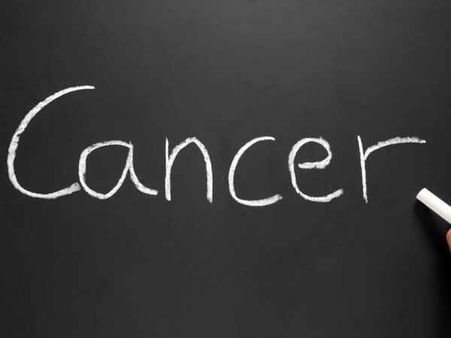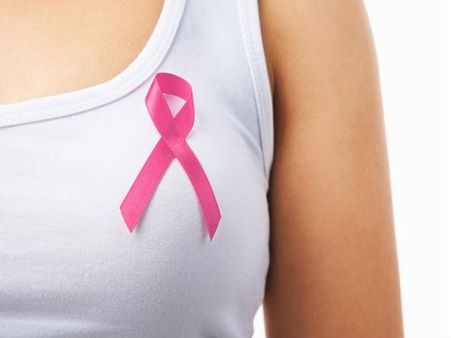Just In
- 6 hrs ago

- 15 hrs ago

- 17 hrs ago

- 18 hrs ago

Don't Miss
- Education
 JEE Main Result 2024 Out, Telangana's 15 Toppers Shine, Check Statewise List of 56 Candidates with Perfect 100
JEE Main Result 2024 Out, Telangana's 15 Toppers Shine, Check Statewise List of 56 Candidates with Perfect 100 - Sports
 Who Won Yesterday's IPL Match 40? DC vs GT, IPL 2024 on April 24: Delhi Capitals Clinch High-Scoring Thriller At Kotla
Who Won Yesterday's IPL Match 40? DC vs GT, IPL 2024 on April 24: Delhi Capitals Clinch High-Scoring Thriller At Kotla - News
 Mangalsutra Row: Did Indira Gandhi Donate Gold During The 1962 War? The Facts Behind Priyanka's Claim
Mangalsutra Row: Did Indira Gandhi Donate Gold During The 1962 War? The Facts Behind Priyanka's Claim - Movies
 Kota Factory 3 OTT Release Date, Platform: When Will Jitendra Kumar's Web Series Premiere On Netflix?
Kota Factory 3 OTT Release Date, Platform: When Will Jitendra Kumar's Web Series Premiere On Netflix? - Travel
 Escape to Kalimpong, Gangtok, and Darjeeling with IRCTC's Tour Package; Check Itinerary
Escape to Kalimpong, Gangtok, and Darjeeling with IRCTC's Tour Package; Check Itinerary - Finance
 DCB Bank Q4 Results: PAT Grew 9% To Rs 156 Cr, NII Jumps 4.5%; Dividend Declared
DCB Bank Q4 Results: PAT Grew 9% To Rs 156 Cr, NII Jumps 4.5%; Dividend Declared - Technology
 OPPO Find X7 Ultra Camera Deep-Dive: Pushing the Boundaries of Photography on a Smartphone
OPPO Find X7 Ultra Camera Deep-Dive: Pushing the Boundaries of Photography on a Smartphone - Automobiles
 Aston Martin Vantage Launched In India At Rs 3.99 Crore
Aston Martin Vantage Launched In India At Rs 3.99 Crore
Coronavirus And Cancer Patients: What You Need To Know
The novel Coronavirus disease (COVID-19) outbreak is having a serious impact on many people with existing medical conditions including cancer. According to the American Cancer Society, cancer patients are at a higher risk of getting severely ill from the coronavirus disease because their immune systems are weakened by cancer and its treatments.
Some doctors are warning that if cancer patients contract the virus, it could be more dangerous than cancer itself because cancer and its treatments can lower the immune system's ability to fight infections. Many cancer patients are left with a difficult choice - delaying chemotherapy treatments or going to the health-care facility to take the treatments and risking contact with the disease.

A study published in the journal The Lancet found that 18 of 1590 COVID-19 cases had a history of cancer. Among these 18 patients, five patients had lung cancer, four patients had received chemotherapy or surgery within the past month and the other patients were cancer survivors in routine follow-up. The study analysed that cancer patients have a higher risk of COVID-19 than people without cancer [1].
What do cancer patients need to know about the coronavirus?
Cancer patients are at an increased risk of getting infected by the virus, so they should take extra care to prevent themselves from getting severely ill, particularly patients who are currently undergoing chemotherapy and patients who had bone marrow transplant. That's because their immunity can be weakened by the treatment.

What does it mean to be immune-compromised for cancer patients?
Cancer patients are at a greater risk of being immune-compromised depending on the type of cancer they have, the type of treatment they are under, their age and other health conditions. The risk of being immune-compromised is highest when a cancer patient is undergoing chemotherapy treatment.

Which type of cancer patients are at a greater risk of catching COVID-19?
- Cancer people who are undergoing chemotherapy.
- Cancer people who are undergoing radical radiotherapy for lung cancer.
- People with blood or bone marrow cancer
- Cancer patients having immunotherapy or are receiving other antibody treatments for cancer.
- People who are taking cancer treatments which can affect the immune system, such as PARP inhibitors or protein kinase inhibitors.

Are breast cancer patients at a higher risk of contracting COVID-19 infection?
People being treated for breast cancer may have a higher risk of falling ill if they become infected with coronavirus. Breast cancer treatments like chemotherapy, immunotherapy, radiation and targeted therapies can weaken the immune system and can lead to lung problems.

If I have a history of cancer, does it raise my risk for health complications from COVID-19?
Cancer patients and cancer survivors may be at a higher risk of health complications from coronavirus because they are immune-compromised.
If I am currently receiving cancer treatment at a health-care facility, what should I do?
If you are receiving cancer treatment, ask your health care provider about all the precautions that you should take and what you should do to avoid contracting COVID-19 infection.


If a cancer patient or cancer survivor gets symptoms like fever or cough, should they contact their oncologist or physician?
If you are receiving treatment for cancer, consult your oncologist and if you are a cancer survivor, consult a physician.
What guidelines should I follow if I am taking care of a cancer patient with confirmed COVID-19?
- The cancer patient should be isolated in a separate room.
- Wash their clothes, bedding and utensils in soap and water
- The patient's utensils, cups, or any other food item should not be shared.
- Wash your hands with soap and water before and after taking care of the cancer patient.

Should people still get screened for cancer during this COVID-19 outbreak?
The American Cancer Society recommends that no one should go to a health-care facility for a routine check-up for cancer screening test at this time. This means if you are due for your cancer screening test to detect breast, colon, lung or cervix cancer, postpone your appointment. When the situation becomes better, reschedule your cancer screening test.

If I have cancer, how can I protect myself?
As there is no vaccine currently available to treat or prevent coronavirus, here are some ways to protect yourself:
- Avoid contact with someone who is showing coronavirus symptoms.
- Stay at home
- Avoid gatherings with friends and family
- Avoid large crowds.
- Wash your hands often with soap and water
To Conclude...
During this pandemic, it is important that all cancer patients and survivors, whether currently in treatment or not should speak to their doctor about their possible risk factors and take precautionary measures to lower their risk of contracting COVID-19.
-
 healthCOVID Surge In India: Do You Need A COVID-19 Booster Shot?
healthCOVID Surge In India: Do You Need A COVID-19 Booster Shot? -
 disorders cureCommon COVID Symptoms In Fully Vaccinated Individuals: What You Should Know
disorders cureCommon COVID Symptoms In Fully Vaccinated Individuals: What You Should Know -
 wellnessMild COVID Linked To Life-Threatening Blood Clots, Increased Risk Of Cardiovascular Disease; Study
wellnessMild COVID Linked To Life-Threatening Blood Clots, Increased Risk Of Cardiovascular Disease; Study -
 wellnessCOVID-19 Variants In India: New COVID Variant May Pose Threat To Elderly People
wellnessCOVID-19 Variants In India: New COVID Variant May Pose Threat To Elderly People -
 basicsCovid-19 Linked To Early Onset Of Periods: What You Need To Know
basicsCovid-19 Linked To Early Onset Of Periods: What You Need To Know -
 wellnessCOVID XBB Variants Of Omicron In India: What You Should Know
wellnessCOVID XBB Variants Of Omicron In India: What You Should Know -
 disorders cureNew Omicron Subvariant BQ.1 Detected In Maharashtra: What You Should Know
disorders cureNew Omicron Subvariant BQ.1 Detected In Maharashtra: What You Should Know -
 disorders cureOmicron BF.7 In India, Risk Of Fresh Wave During Diwali: What You Should Know
disorders cureOmicron BF.7 In India, Risk Of Fresh Wave During Diwali: What You Should Know -
 wellnessCoronavirus Residues Might Be Causing Long COVID: New Study
wellnessCoronavirus Residues Might Be Causing Long COVID: New Study -
 wellnessCentury-Old TB Vaccine Could Be Effective Against Covid-19 And Other Infections: New Study
wellnessCentury-Old TB Vaccine Could Be Effective Against Covid-19 And Other Infections: New Study -
 disorders cureCovid-19 Patients At Risk Of Neurological & Psychiatric Conditions Two Years After The Infection: New Study
disorders cureCovid-19 Patients At Risk Of Neurological & Psychiatric Conditions Two Years After The Infection: New Study -
 wellnessCOVID In Smokers: An Expert Explains
wellnessCOVID In Smokers: An Expert Explains


 Click it and Unblock the Notifications
Click it and Unblock the Notifications



